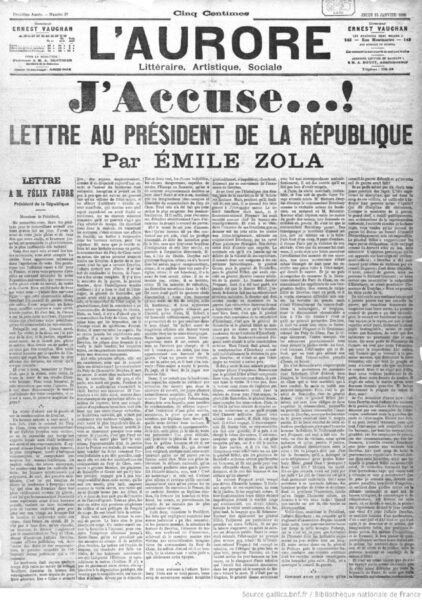The following leaflet (printed) was passed to an acquaintance of mine in a pub:
LONG LIVE THE IRISH!The first American soldier to kill a Jap was Mike Murphy.
The first American pilot to sink a Jap battleship was Colin Kelly.
The first American family to lose five sons in one action and have a naval vessel named after them were the Sullivans.
The first American to shoot a Jap plane was Dutch O’Hara.
The first coastguardsman to spot a German spy was John Conlan.
The first American soldier to be decorated by the President was Pat Powers.
The first American admiral to be killed leading his ship into battle was Dan Callahan.
The first American son-of-a-bitch to get four new tyres from the Ration Board was Abie Goldstein.The origin of this thing might just possibly be Irish, but it is much likelier to be American. There is nothing to indicate where it was printed, but it probably comes from the printing-shop of some American organization in this country. If any further manifestos of the same kind turn up, I shall be interested to hear of them.
George Orwell, “As I Please”, Tribune, 1944-12-08.
January 28, 2023
QotD: Allied anti-semitism in WW2
January 18, 2023
L’affaire Dreyfus
Robert Zaretsky on an espionage scandal that convulsed the French Third Republic and still has resonance down to today:
On January 13, 1898, Parisians awoke to the chorus of hundreds of news criers who, striding along the grand boulevards and brandishing copies of the newspaper L’Aurore, were shouting passages from the article that sprawled across the front page. It had originally been titled by its author, the novelist Émile Zola, “A Letter to M. Félix Faure, President of the Republique”. But with a flair for the sensational, the newspaper’s editor, Georges Clemenceau, slapped on a punchier headline. Stepping out of a department store or stepping down from a carriage, sitting at a café or standing at an intersection, pedestrians were greeted by two words that continue to resonate 125 years to the day after their first publication: “J’Accuse!”
With this exclamation, Zola’s letter transformed une affaire judiciare into l’affaire Dreyfus or, more simply, the Dreyfus Affair. It catapulted the French novelist onto the world stage at a critical moment in the history of his country, which was reeling from the forces of globalisation and industrialisation and riven by opposing understandings of its revolutionary heritage. It is thus hardly surprising that Zola’s fame rests more heavily on the letter than on his sweeping 20-volume masterpiece of literary realism, the Rougon-Macquart. It took a novelist to heave the facts of this affair into a narrative which, more than a century later, thrums with equal urgency. Moreover, as with the novels of the Rougon-Macquart, the letter thrusts onto centre-stage a lone individual swept up, and all too often swept under, the political and social, irrational and ideological forces of the modern age.
It all began with the contents of a rubbish bin. In September 1894, a cleaning woman at the German Embassy, in the pay of France’s military intelligence service, delivered her nightly harvest to her employers. Buried in the mound of discarded papers was a memorandum, known as the bordereau or note, revealing top secret advances in French artillery technology and tactics. In a frantic scramble to find its author, the war ministry’s suspicion settled on Captain Alfred Dreyfus, an officer in the High Command who stood out for his standoffishness and Jewishness.
Upon being arrested and charged, a bewildered Dreyfus denied the charges, pointing out several things mentioned in the bordereau he could not possibly have known. The seven members of the military tribunal, ignoring these inconsistencies as well as the insistence of their own graphologist that Dreyfus’s handwriting did not match the bordereau‘s, unanimously found him guilty. He was sentenced to life imprisonment in solitary confinement on Devil’s Island, a malarial rock off the coast of French Guyana.
But first came a remarkable ritual of public humiliation. Dreyfus was marched into the courtyard of the École militaire, the renowned military academy a short distance from the recently erected Eiffel Tower. In the shadow of that monument to modernity, an officer preceded to snap Dreyfus’s sword — broken and soldered back together with tin the night before, to make the gesture seem effortless — and tear off his insignia — whose threads were already loosened — while a dense crowd howled with calls for the death of the “Jewish traitor!”
Two years later, as Dreyfus wasted away in solitary confinement, Colonel Georges Picquart, the newly appointed head of military intelligence, found that another missive about French military plans had ended up in the rubbish bin at the German Embassy. Moreover, the handwriting on this new document, which matched that of the bordereau, also matched the hand of Ferdinand Esterhazy, an officer notorious for his womanising and gambling.
Picquart disliked Jews as much as his many of his fellow officers did. But when his commanding officer asked him why it mattered if “this Jew remains on Devil’s Island”, Picquart replied: “Because he is innocent!” The answer earned Picquart a rapid transfer to a desert outpost in North Africa. Before he was packed off, though, Picquart vowed that he would not “carry this secret to my grave”. He then shared what he knew with Auguste Scheurer-Kestner, the leader of Dreyfusards, a small but growing coterie of politicians and writers seeking a retrial for Dreyfus.
In late 1897, Zola met with Scheurer-Kestner, who told him about Picquart’s discovery. As the mesmerised novelist listened, he glimpsed the theatrical as well as moral dimensions of the affair. “It’s thrilling!” he gasped. “It’s frightful! But it is also drama on the grand scale!” It took Zola to scale it to greatness by flipping Oscar Wilde’s sly quip that anyone could make history, but only a great man could write it. Instead, Zola showed, a man becomes truly great only by, in every sense of the word, making history.
December 3, 2022
The end of the old “WASP” upper class
Scott Alexander is reading Bobos in Paradise by David Brooks and summarized the first sixth of the book:
The daring thesis: a 1950s change in Harvard admissions policy destroyed one American aristocracy and created another. Everything else is downstream of the aristocracy, so this changed the whole character of the US.
The pre-1950s aristocracy went by various names; the Episcopacy, the Old Establishment, Boston Brahmins. David Brooks calls them WASPs, which is evocative but ambiguous. He doesn’t just mean Americans who happen to be white, Anglo-Saxon, and Protestant — there are tens of millions of those! He means old-money blue-blooded Great-Gatsby-villain WASPs who live in Connecticut, go sailing, play lacrosse, belong to country clubs, and have names like Thomas R. Newbury-Broxham III. Everyone in their family has gone to Yale for eight generations; if someone in the ninth generation got rejected, the family patriarch would invite the Chancellor of Yale to a nice game of golf and mention it in a very subtle way, and the Chancellor would very subtly apologize and say that of course a Newbury-Broxham must go to Yale, and whoever is responsible shall be very subtly fired forthwith.
The old-money WASPs were mostly descendants of people who made their fortunes in colonial times (or at worst the 1800s); they were a merchant aristocracy. As the descendants of merchants, they acted as standard-bearers for the bourgeois virtues: punctuality, hard work, self-sufficiency, rationality, pragmatism, conformity, ruthlessness, whatever made your factory out-earn its competitors.
By the 1950s they were several generations removed from any actual hustling entrepreneur. Still, at their best the seed ran strong and they continued to embody some of these principles. Brooks tentatively admires the WASP aristocracy for their ethos of noblesse oblige — many become competent administrators, politicians, and generals. George H. W. Bush, scion of a rich WASP family, served with distinction in World War II — the modern equivalent would be Bill Gates’ or Charles Koch’s kids volunteering as front-line troops in Afghanistan.
At their worst, they mostly held ultra-expensive parties, drifted into alcoholism, and participated in endless “my money is older than your money” dick-measuring contests. And they were jocks — certainly good at lacrosse and crew, but their kids would be much less likely than modern elites’ to become a scientist, professor, doctor, or lawyer. Not only that, they were boring jocks — they stuck to a few standard rich people hobbies (yachting, horseback riding) and distrusted creativity or (God forbid) quirkiness. Their career choices were limited to the family business (probably a boring factory with a name like Newbury-Broxham Goods), becoming a competent civil service administrator, or other things along those lines.
The heart of the WASP aristocracy was the Ivy League. I don’t think there are good statistics, but until the early 1900s many (most?) Ivy League students were WASP aristocrats from a few well-known families. Around 1920 the Jews started doing really well on standardized tests, and the Ivies suspended standardized tests in favor of “holistic admissions” to keep them out and preserve the WASPishness of the elite. All the sons (and later, daughters) of the WASPs met each other in college, played lacrosse together, and forged the sort of bonds that make a well-connected and self-aware aristocracy.
Around 1955 (Brooks writes, building on an earlier book by Nicholas Lemann) Harvard changed their admission policy. Why? Partly a personal decision by Harvard presidents James Conant, and Nathan Pusey, who sincerely believed in meritocracy. And partly because Harvard’s Jewish quota was becoming unpopular, as increased awareness of the Holocaust made anti-Semitism déclassé. Conant and Pusey decided to admit based on academic merit (measured mostly by SAT scores). The thing where Harvard would always admit WASP aristocrats because that was the whole point of Harvard was relegated to occasional “legacy admissions”, a new term for something which was now the exception and not the rule. Other Ivies quickly followed.
Brooks on the consequences:
In 1952, most freshmen at Harvard were products of … the prep schools of New England (Andover and Exeter alone contributed 10% of the class), the East side of Manhattan, the Main Line of Philadelphia, Shaker Heights in Ohio, the Gold Coast of Chicago, Grosse Pointe of Detroit, Nob Hill in San Francisco, and so on. Two-thirds of all applicants were admitted. Applicants whose fathers had gone to Harvard had a 90% admission rate. The average verbal SAT score for the incoming men was 583, good but not stratospheric. The average score across the Ivy League was closer to 500 at the time.
Then came the change. By 1960 the average verbal SAT score for incoming freshman at Harvard was 678, and the math score was 695 — these are stratospheric scores. The average Harvard freshman in 1952 would have placed in the bottom 10% of the Harvard freshman class of 1960. Moreover, the 1960 class was drawn from a much wider socioeconomic pool. Smart kids from Queens or Iowa or California, who wouldn’t have thought of applying to Harvard a decade earlier, were applying and getting accepted … and this transformation was replicated in almost all elite schools. At Princeton in 1962, for example, only 10 members of the 62-man football team had attended private prep schools. Three decades earlier every member of the Princeton team was a prep school boy.
There was a one-or-two generation interregnum where the new meritocrats silently battled the old WASP aristocracy. This wasn’t a political or economic battle; as a war to occupy the highest position in the class hierarchy, it could only be won through cultural prestige. What was cool? What was out of bounds? What would get printed in the New York Times — previously the WASP aristocracy’s mouthpiece, but now increasingly infiltrated by the more educated newcomers?
November 16, 2022
The Real Reason for Hitler’s War – WW2 Specials
World War Two
Published 15 Nov 2022The murder of the Jews of Europe is not simply conducted alongside the military and political war aims of the Third Reich. For Hitler and the Nazis, the murder of the Jews of Europe is the military-political aim of the war. It confounds all logic, but in the twisted worldview of Nazi ideology, it makes perfect sense. This is a war on the Jewry.
(more…)
September 20, 2022
Hannah Arendt in postwar Germany
In Quillette, Roger Berkowitz discusses what Hannah Arendt found when talking to Germans after the Second World War, which she characterized as their collective “escape from reality”:
In 1949, when Hannah Arendt (1906–1975) went to Germany as part of the New York-based Jewish Cultural Reconstruction Commission, she was struck by the way the Germans showed an “at times vicious refusal to face and come to terms with what really happened”. This “escape from reality”, as Arendt named it, meant that the reality of the Holocaust and the death factories was spoken of as a hypothetical. And when the truth of the Holocaust was admitted, it was diminished: “The Germans did only what others are capable of doing”.
The Germans, at times, simply denied the facts of what had happened. One woman told Arendt that the “Russians had begun the war with an attack on Danzig”. What Arendt encountered was a “kind of gentleman’s agreement by which everyone has a right to his ignorance under the pretext that everyone has a right to his opinion”. The underlying assumption for such a right is the “tacit assumption that opinions really do not matter”. Opinions are just that, mere opinions. And facts, once they are reduced to opinions, also don’t matter. Taken together, this led to a “flight from reality”.
The focus of Arendt’s lifelong engagement with the human flight from reality was her encounter with ideologies, specifically Nazism and Bolshevism. In The Origins of Totalitarianism and other texts (especially her essay, “On the Nature of Totalitarianism“), Arendt defines an ideology as a system that seeks to explain “all the mysteries of life and the world” according to one idea. Nazism is an ideology that blames economic disaster, political loss, and the evils of modernity on the Jews — inhuman flotsam who must be exterminated to allow a master race to flourish. Bolshevism, on the other hand, “pretends that all history is a struggle of classes, that the proletariat is bound by eternal laws to win this struggle, that a classless society will then come about, and that the state, finally, will wither away”. The bourgeoisie are not simply class traitors, they are a dying class, and killing them only supports a law of history. As ideologies, both Nazism and Bolshevism insist on explaining the events of the world according to theories “without further concurrence with actual experience”. The result, Arendt argues, is that such ideologies bring about an “arrogant emancipation from reality”.
Because an ideology “looks upon all factuality as fabricated”, it “no longer knows any reliable criterion for distinguishing truth from falsehood”. As reality recedes, ideologies organize society to transform their ideas into living reality. If antisemitism as an ideology says that all Jews are beggars without passports, the fact of wealthy and established Jews must be eliminated. If Bolshevism says that the bourgeoisie are corrupt, they must admit their corruption or be killed. The realization of such ideological realities can be accomplished, of course, through terror.
But even before a totalitarian movement takes power and mobilizes the secret police in the machinery of terror, ideological movements can employ propaganda to deny and nullify facts, or change them. The Nazis, she writes, “did not so much believe in the truth of racism as desire to change the world into a race reality”. Similarly, the Bolshevist ideology that classes were dying was not something real, but something that had to be made real. The purges and terror that Stalin unleashed were supposed to “establish a classless society” by exterminating all social groups that might develop into classes. In both instances, the purpose of the ideology was to transform a mere opinion — race consciousness or class consciousness — into the “the lived content of reality”.
The point, as Arendt concludes, is that “ideological consistency reducing everything to one all-dominating factor is always in conflict with the inconsistency of the world, on the one hand, and the unpredictability of human actions, on the other”. What ideology demands is that man — an unpredictable and spontaneous being — cease to exist as such, that all humans be subjected to laws of development that follow ideological truth. That is why the turn from an unreliable reality to coherent fantasy requires an absolute elimination of human spontaneity and freedom.
September 16, 2022
How “misgendering” shattered the Green Party of Canada
Canada’s Green Party has never been noted for their tight party cohesion, so my use of the word “shattered” in the headline is a bit over-the-top, I must confess. Jonathan Kay provides a quick outline of the party’s history through the leadership of Elizabeth May, Annamie Paul, and most recently, interim leader Amita Kuttner:
Many grumbled that May was too slow to give up her leadership perch. Yet when she finally did step aside in 2019, the party learned that she’d been the only thing holding the outfit together. By the time the 2021 federal election rolled around, the Greens’ leader was a black Jewish woman named Annamie Paul, who got absolutely trounced in her own riding, winning fewer than 4,000 votes. Paul was then quickly run out of the party leadership during a complicated (and often farcical) internecine battle that involved public accusations of bigotry hurled in all directions, and which (predictably) repelled many of the party’s financial supporters.
On Sept. 27 I began the process of stepping down as Green Party of Canada Leader. Today I sent formal notice of my resignation to the GPC. I will also be ending my membership in the GPC.
It was an honour to work for the people of Canada and I look forward to serving in new ways.— Annamie Paul (@AnnamiePaul) November 10, 2021
One might think things couldn’t get any worse for the Greens. But, thanks to the installation of a 30-year-old interim leader named Amita Kuttner, they very much did.
Kuttner self-describes as non-binary, transgender, and pansexual. When asked, “What are your preferred pronouns?” in a 2019 interview, the one-time astrophysicist replied, “they/them”, but then elaborated as follows:
When I write my pronouns, I sometimes write all of them: they/them, she/her, he/him, because I don’t care. There will be days where I’m not always even aware of what my gender is, and I will notice it based on how someone addresses me and whether I respond. I was in choir for many years, and they’d say, “women sing now”, “men sing now”. And I would find myself starting with one or the other group, even though I was obviously supposed to sing soprano. I’d be like, “Oh, I guess I’m feeling that today.”
And yet, despite the fact Kuttner apparently can’t always figure out “what my gender is”, and claims not to “care” in any case, the interim leader felt the need to issue a lengthy statement on September 6th detailing the allegedly devastating emotional effects that ensued when the pronoun descriptor “she/elle” appeared in the electronic caption that sat alongside Kuttner’s name during a Green Party of Canada Zoom call, instead of the Kuttner-approved “they/he/ille”. Indeed, Kuttner described the ordeal as evidence that the Greens were infected by a “system of oppression”:
What happened here impacted me much more than a slip of the tongue. It made me feel hurt and isolated at a moment that should have been filled with inspiration and anticipation … This incident is reflective of a larger pattern of behaviours that a few in the party are perpetuating. Over the years, the party has documented reports which indicate a systemic issue disproportionately affecting Black, Indigenous, and racialized people and 2SLGBTQIA+ people, and I hope many more stories will be able to be shared so that this incident can be a catalyst for change … When things like this happen, people need to see those in leadership positions take some accountability, acknowledge how they have added to this system of oppression and what they must do to break the cycle.
Kuttner’s attempt to weaponize this (apparently very oppressive) instance of miscaptioning forms part of an ongoing civil war that’s been playing out for weeks within the Green leadership. That battle goes to the question of whether the party should proceed with its ongoing party leadership race, or pause it so that Green functionaries can investigate all of the (vaguely expressed) accusations of antisemitism, racism, and transphobia that were flung in every direction during the tumultuous last days of the Annamie Paul era back in 2021.
July 14, 2022
QotD: Fascism and anti-semitism
The Fascist theory of power … defines the system from above, naturally evolving quite rapidly into Führerprinzip, the cult of the absolute leader whose authority may not be questioned. One important consequence is that fascist strongmen like to create institutions parallel to the civil police and line military that are answerable directly and personally to the Maximum Leader. Of course the best known example is Hitler’s SS, but any well-developed fascism generates equivalents.
You can have a quite an effective totalitarianism without this; Stalin, for example, never bothered with an SS-equivalent. You can get similar developments under Communism; consider Mao’s Red Guards. And on the third hand, Franco copied that part of the formula without actually being a Fascist. Still – if you think you’ve spotted a fascist demagogue ramping up to takeover, one of the things to check is whether he’s trailing a thug army behind him ready to turn into a personal instrument of force. If he isn’t, you’re probably wrong.
Another thing that follows from the Fascist theory of power is hostility towards markets, free enterprise, and trade. Yes, yes, I know, you’ve heard all your life that fascists are or were tools of capitalist oligarchs, but this is another big lie. In reality about the last person you want to be is a “capitalist oligarch” in the way of one of Maximum Leader’s plans. Because even if he needs you to run your factories, you’re likely to find out all the ways utter ruthlessness can compel you. Threats to your family are one time-honored method. You can’t buy him, because has the power to take anything he really wants from you.
In fact, one of the reasons fascist regimes turn anti-Semitic so often is because Jews are identified with mercantile activity. Which in the Fascist view of things, is corrupting and disruptive of loyalty bonds that should be more important than wealth. Furthermore, Fascism inherited from its parent Marxism the whole critique about capitalism alienating workers from their production.
The political economics of fascism is always state-socialist, and explicitly so. This follows directly from the drive for centralization.
Eric S. Raymond, “Spotting the wild Fascist”, Armed and Dangerous, 2019-04-30.
July 6, 2022
June 16, 2022
Secret Foods of the Spanish Inquisition
Tasting History with Max Miller
Published 15 Feb 2022Support the Channel with Patreon ► https://www.patreon.com/tastinghistory
Merch ► crowdmade.com/collections/tastinghistory
Instagram ► https://www.instagram.com/tastinghist…
Twitter ► https://twitter.com/TastingHistory1
Tiktok ► TastingHistory
Reddit ► r/TastingHistory
Discord ► https://discord.gg/d7nbEpy
Amazon Wish List ► https://amzn.to/3i0mwGt
Send mail to:
Tasting History
PO Box 766
Burbank, CA 91503LINKS TO SOURCES**
A Drizzle of Honey by David M. Gitlitz and Linda Kay Davidson: https://amzn.to/3gyf0CY
The Spanish Inquisition by Henry Kamen: https://amzn.to/3B9EbVXRECIPE
1 cup (160g) dried fava beans
1 cup (180g) dried chickpeas
2 1/2 lbs or 1kg beef
¼ cup (60ml) Olive oil
1 tablespoon salt
1 large onion diced
1 quart (1L) beef broth or water
2 teaspoon ground coriander
1 1/2 tsp ground cumin
2 teaspoon ground caraway
2 teaspoon fresh ground pepper
2 Eggplant, peeled and chopped
A large handful of chard leaves1. Coat the eggplant in salt, cover, and set aside for several hours.
2. Boil the fava beans and chickpeas in a large pot for 2 minutes, then drain and set aside. In the same pot, heat half of the olive oil over medium heat then, add the onions and half of the salt and cook until lightly brown, about 8 minutes. Remove the onions and add the beef to the empty pot with the rest of the oil and salt. Cook until lightly brown, about 5 minutes. Add the onions back in as well as the beef broth/water. Bring to a simmer and cover, letting the stew simmer for 1 hour.
3. Drain and rinse the eggplant, then add it into the pot along with the fava bean, chickpeas, and spices. Cover and let cook for another 2 hours.
4. Chop the chard, then pound it flat with a rolling pin, and add it into the pot. Set the pot into the oven at 200°F and cook overnight (or at least 6 hours). Alternately, you can transfer the adafina to a slow cooker overnight. Serve alone or over rice.**Some of the links and other products that appear on this video are from companies which Tasting History will earn an affiliate commission or referral bonus. Each purchase made from these links will help to support this channel with no additional cost to you. The content in this video is accurate as of the posting date. Some of the offers mentioned may no longer be available.
Subtitles: Jose Mendoza | IG @ worldagainstjose
#tastinghistory #jewishcooking #spanishinquisition
May 7, 2022
QotD: De Gaulle’s France
De Gaulle was as much a Victorian as Churchill, but he lasted much longer, striding into the modern era not just as an object of reverence but as an active political force. His childhood in France’s austere northern regions was soaked in patriotism and religion, administered and absorbed in strong doses which would now be regarded as dangerous. In those years of toy soldiers and strict mealtimes he learned, among other things, to dislike, mistrust, and resent the ancient English foe, so much that he would never fully shake off these feelings. His was the France wounded and dismembered by the debacle of the 1870 Franco-Prussian war, appalled by the rising of the Paris Commune, shaken and divided by the wrongful humiliation, prosecution, and cruel imprisonment of Captain Dreyfus. The shadow of Germany was unavoidable. In Paris, the statue on the Place de la Concorde that represented the city of Strasbourg was veiled in black, in mourning at its seizure by the German Empire. Professor Jackson tries hard to acquit de Gaulle of any allegiance, then or later, to the anti-Dreyfus faction. There is no doubt that de Gaulle in his later life was far too intelligent to fall for the crude anti-Semitism that infects so much French conservatism and was especially strong in de Gaulle’s youth. Still, it is hard to accept that he was never touched by it, and in moments of strain he would make remarks or use derogatory words that no person should make or use.
Peter Hitchens, “A Certain Idea of France”, First Things, 2019-04.
May 2, 2022
Cancel Karl Marx? That’s definitely a bridge too far for the woke
In the free portion of his Weekly Dish, Andrew Sullivan considers how other philosophers and statesmen from the age of enlightenment are quickly thrown aside by modern day Progressives, yet one political philosopher remains sacrosanct:
Discrediting a thinker’s broad worldview or legacy by discovering some statement from the distant past revealing him or her to be a bigot by today’s standards is a depressing degeneration in our intellectual life. It speaks of a compulsion to moralize rather than to understand, to shut down rather than expand debate.
Picasso was morally monstrous; but his painting is transcendent. And if you cannot disentangle the two, you are attacking a key liberal principle: that ideas and works of art should be considered on their merits, and not on the virtue or vice of their proponents.
But what makes this illiberalism even more repellent is how selective it is. For a few generations now, critical race theorists have attempted to cancel one Enlightenment thinker after another, excoriating Thomas Jefferson as a bigot and hypocrite, David Hume as a vicious racist, Immanuel Kant of all people for white supremacism. The Age of Reason has been recast as the Era of Hate.
In his new book, The War on the West, Douglas Murray quotes Black Studies professor Kehinde Andrews explaining the rationale for this: “A defense of liberalism is the worst possible thing you want to do. Because liberalism is the problem. It is the Enlightenment values which really cement racial prejudice.” The notion here is that human beings had no tribal, racial prejudices until the Age of Reason dawned. Racial hatred was invented by and is the exclusive property of white people in the last few hundred years. Seriously, that’s what the woke believe.
The attacks on Hume, Jefferson and Kant, moreover, refer to single sentences or asides that represent some of the lazy bigotries of the past. (The entire works of Aristotle and Plato are also on the chopping block because of their retrograde views on slavery, among other things.) And so one wonders if the same standard would apply to every philosopher in the past — way beyond the Enlightenment.
Well, one doesn’t wonder very much … because the bad faith of so much critical theory is a feature and not a bug. The goal is not to see the truth, but to gain power in order to impose their truth. And to accuse you of hate if you dare to demur.
Few examples demonstrate this better than Karl Marx, one of the most repellent anti-Semites and racists of the 19th century. Murray’s treatment is devastating. Let’s cite some of the greatest hits:
The Jewish nigger Lassalle who, I’m glad to say, is leaving at the end of this week, has happily lost another 5,000 talers in an ill-judged speculation … It is now quite plain to me — as the shape of his head and the way his hair grows also testify — that he is descended from the negroes who accompanied Moses’ flight from Egypt (unless his mother or paternal grandmother interbred with a nigger). Now, this blend of Jewishness and Germanness, on the one hand, and basic negroid stock, on the other, must inevitably give rise to a peculiar product. The fellow’s importunity is also nigger-like.
Classic “race science” — yet the left pass it by. The following passage could come from Mein Kampf:
What is the worldly religion of the Jew? Huckstering. What is his worldly God? Money. … Money is the jealous god of Israel, in face of which no other god may exist. Money degrades all the gods of man — and turns them into commodities. … The bill of exchange is the real god of the Jew. His god is only an illusory bill of exchange. … The chimerical nationality of the Jew is the nationality of the merchant, of the man of money in general.
And this is not just a personal aside or footnote or private correspondence. It’s in a published essay, “On The Jewish Question”, from 1843.
What did Marx think of a multicultural society? Roughly what Richard Spencer believes today. In 1853, Marx wrote of the Balkans that the region had “the misfortune to be inhabited by a conglomerate of different races and nationalities, of which it is hard to say which is the least fit for progress and civilization.”
March 26, 2022
Hollywood: Government Propaganda? – WW2 Special
World War Two
Published 24 Mar 2022Along with its arsenal of carriers, bombers, and tanks, America has perhaps the most powerful weapon of all: Hollywood. Hollywood is pumping out American and Allied propaganda as quickly as it can. But was this always the case?
(more…)
February 19, 2022
When Goebbels Signed Germany’s Suicide Pact – WW2 Special
World War Two
Published 17 Feb 2022Outnumbered, outgunned, and outproduced by the Allies, the noose seems to be tightening slowly but surely around the Third Reich. For Joseph Goebbels, salvation lies in a radical transformation of the economy and society – Total War. But first, he must sell it to the German people.
(more…)
February 15, 2022
Total War on Valentine’s Day – WW2 – Reading Comments
World War Two
Published 14 Feb 2022Another installment of Across the Airwaves, where we highlight some of the best viewer comments under our videos. It’s Valentine’s Day and we’re feeling pretty romantic, so Indy and Spartacus will be reading comments that are all about love, humanity, and relationships.
(more…)
February 6, 2022
In Critical Race Theory, racism “only applies to powerful whites (and fellow travelers) vis-a-vis powerless blacks”
Andrew Sullivan on Caryn Elaine Johnson (stage name Whoopi Goldberg) and how her unconsidered anti-semitic worldview has been moulded and shaped by Critical Race Theory:
Whoopi Goldberg, I think it’s safe to say, is not a deep thinker, and wouldn’t claim to be. She’s also clearly not an anti-Semite. She’s a talented entertainer and merely reflects many (but not all) of the assumptions of Hollywood types — well-intentioned, rarely ruffled, cultural leftism. But that’s precisely why her comments on The View about antisemitism and the Holocaust are so interesting. They expose some aspects of “anti-whiteness” and “antiracism” as these CRT ideas have trickled down into the public consciousness, and also a deep, long-standing sense among some African-Americans that Jews in America are not usually the oppressed, but often the oppressor. These are things no one wants to explore very much — because it’s complicated, fraught, and, well, who needs the grief?
So here we go! Anti-Semitism is seen as not racism, because for Whoopi, and critical theorists, “racism” is defined as an essentially Euro-American social construction, which didn’t exist before the colonial era, and only applies to powerful whites (and fellow travelers) vis-a-vis powerless blacks. Racism is not, for them, a universal, instinctual, tribal, evolution-rooted suspicion of different-looking others that is always with us, and can happen anywhere. It is solely rather the deliberate, historically contingent oppression of the non-white by colonial “white supremacy”. However much truth this contains about American history (and it does contain a lot of it), it’s a terribly parochial view that misses a huge amount in the world, throughout history, and in America.
As Adam Serwer explains, this parochial view of racism also “renders the anti-Semitism that led to the Holocaust illegible”. Well, yeah. Any theory of racism that cannot explain the Holocaust is not just illegible, it is untenable. It would mean that the conflicts between, say, Tutsis and Hutus, Germans and Slavs, Jews and Arabs, Burmese and Rohingya, or Han and Uighur, are not instances of racism — because they are not examples of “white targeting non-white”. It wouldn’t include the Bible’s description of the Jewish people’s own enslavement by the Pharaohs, for goodness’ sake. And that’s a problem for any concept of racism — let alone one that now controls much of American culture.
Here, for example, is the Anti-Defamation League’s woke definition of “racism” the day Whoopi made her remarks (a definition swiftly changed after the contretemps): “The marginalization and/or oppression of people of color based on a socially constructed racial hierarchy that privileges white people.” But since Jews are deemed “white people”, by this definition, how could the Nazis have been racist? The same would also have to be said, would it not, about Louis Farrakhan today? He may sound like a Nazi about Jews, but his skin color means he cannot be racist.
Whoopi’s gaffe helps explain why the mainstream media now describes young black men assaulting Jews and Asians as expressing … “white supremacy”! This is what the WaPo op-ed page, referring to growing Latino support for Trump, called “multiracial whiteness”. If they are non-white and bigots, they miraculously become white. And notice how bigotry is exclusively ascribed to a single “race”: whites. Without whites, we’d have no racism at all.
This is not the only way critical theorists distinguish anti-Semitism from racism. “Whiteness”, disproportionately including Jewishness, is wrapped up in systems of oppression, especially capitalism, and defined by control of money and power. Robin DiAngelo argues in White Fragility that “white supremacy” exists in mainstream America by noting how many “white people” there were in various positions of power in 2017:
Ten richest Americans: 100 percent white (seven of whom are among the ten richest in the world). US Congress: 90 percent white. US governors: 96 percent white. Top military advisers: 100 percent white. President and vice president: 100 percent white. US House Freedom Caucus: 99 percent white. Current US presidential cabinet: 91 percent white. People who decide which TV shows we see: 93 percent white. People who decide which books we read: 90 percent white. People who decide which news is covered: 85 percent white. People who decide which music is produced: 95 percent white. People who directed the one hundred top-grossing films of all time, worldwide: 95 percent white.
She goes on to emphasize Hollywood’s influence, in particular. Now just put the word “Jewish” where the word “white” is, and her list reads a bit differently, doesn’t it: “People who decide which books we read: 90 percent Jewish. People who decide which news is covered: 85 percent Jewish.” It’s an assertion that one race hoards power, controls the media, and directs the culture, a race so powerful it permeates everything. Sound a little familiar?











